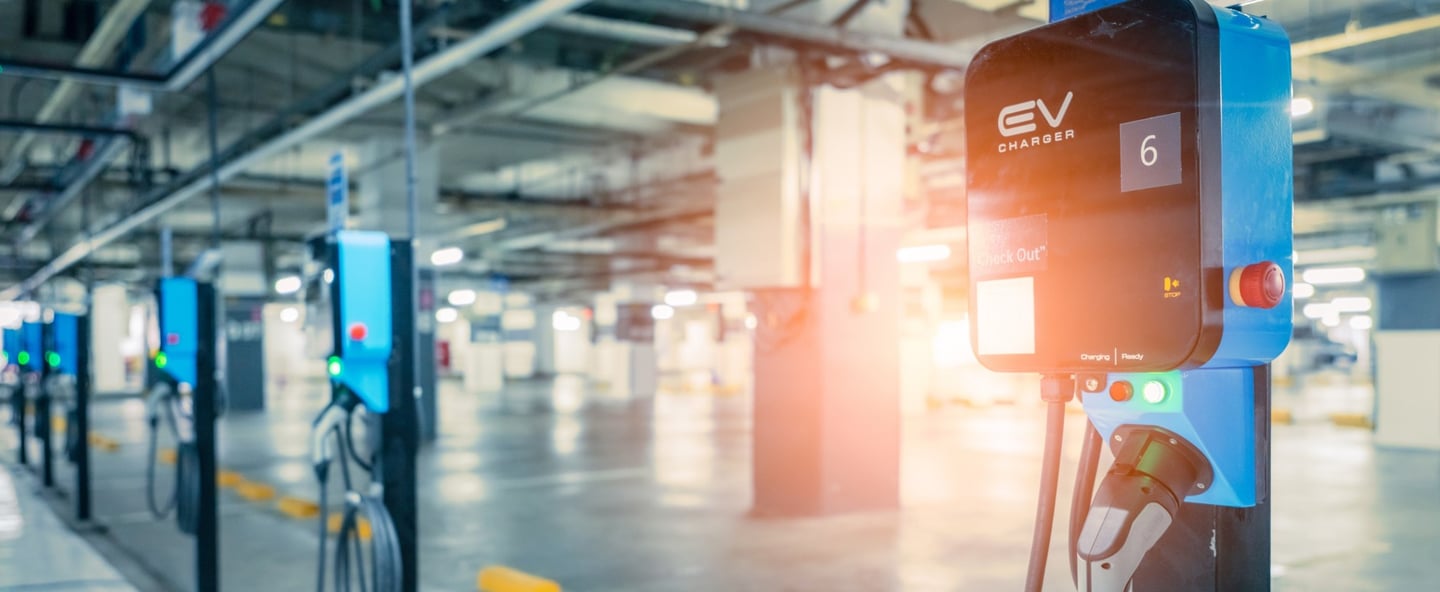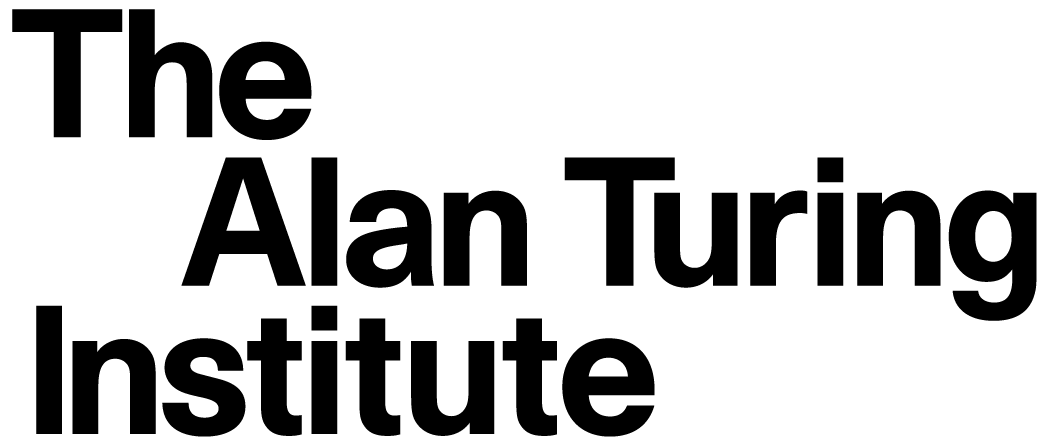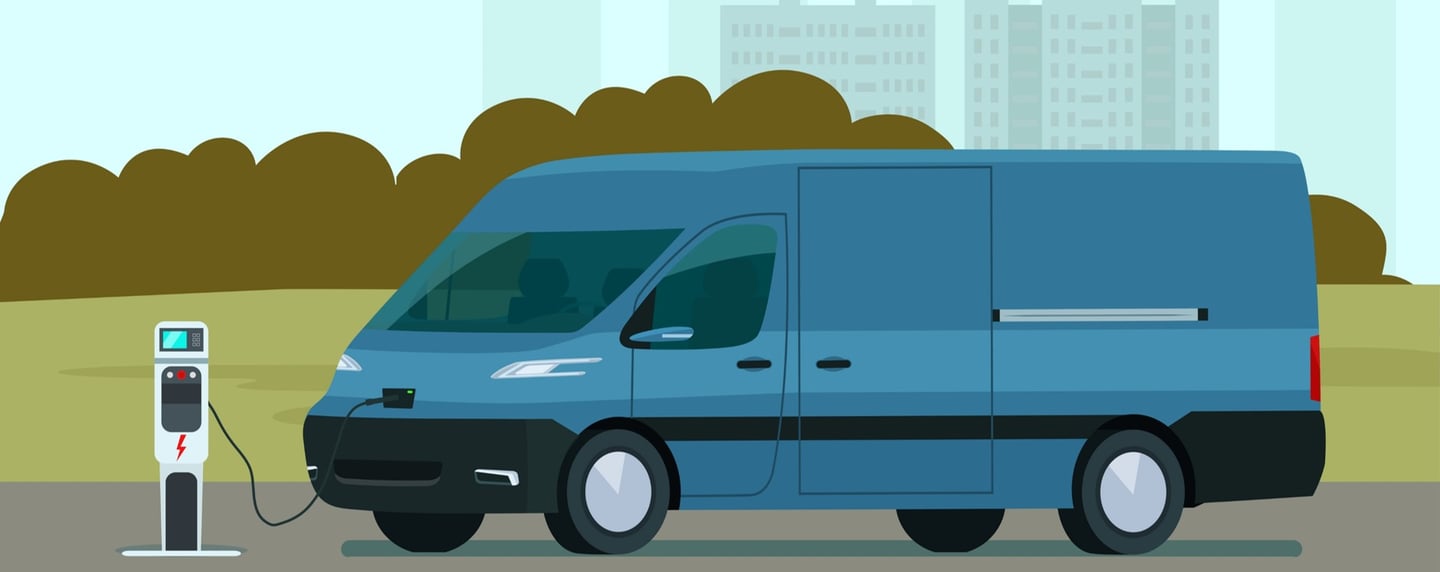Engie

ENGIE is a leading energy and services company focused on the production and supply of low carbon energy, services, and regeneration. In the UK & Ireland, ENGIE aims to make zero carbon happen for businesses and communities – accelerating the transition towards a net zero carbon world.
Reflecting this mission, it worked with the National Innovation Centre for Data (NICD) to develop its new Go Electric data model, which ensures that the transition of company fleets to electric vehicles can be done with minimum impact on productivity.
In the UK ENGIE’s 2,000 vehicles are a key ingredient of its success, but the company wants to transition to a cleaner electric fleet as soon as possible.
The NICD's approach is very much one of knowledge transfer so we thought they would be a really good partner to work with. We've got a lot out of it. They've been a great support for this project.
The company
ENGIE employs 170,000 people globally, who all work to a common goal of making zero carbon happen. The business does this by reducing energy consumption and driving efficiency, greening supply, and enabling progress through innovative technology, data & partnerships. We are also shaping the future of responsible business by reconciling economic performance with a positive impact on people and the planet.
Alongside ENGIE’s three key activities in the UK & Ireland, the business has also invested in low carbon assets such as wind and solar energy. It combines facilities and energy services for organisations and supports communities through regeneration and refurbishment programmes, repairs, maintenance, and housing development.
ENGIE has recently created a new Data Science and Innovation team, which is seeking to harness the power of data to maximise the economic and social benefits of its operations.
The goal
We worked with ENGIE to support the Data Science and Innovation team as it developed the new model that would be used to identify the most efficient sites for vehicle charging points in the Wakefield area, where the company currently operates 54 diesel vans. If successful the model could be rolled out more widely with the ultimate aim of installing charging points so that vehicles can be charged while its engineers were working, wherever possible.

The NICD engagement was also supported by the Alan Turing Institute, the UK's national institute for data science and artificial intelligence.
The results
Our team supported ENGIE data scientist, Dan Walker, as he developed its new Go Electric model, which has been successful in identifying the best locations for electric vehicle charging points. Although Dan was already well-versed in data science techniques. we were able to provide him with new insights and skills during the project. The model has already:
- identified key charging locations in Wakefield and Manchester
- led to the installation of the first charging point in Wakefield
- been used in a project to identify charging locations in Rotherham
- been the subject of presentation to colleagues in Belgium and France
- been shared with colleagues on ENGIE’s global knowledge-sharing platform.
Transferring data science skills
ENGIE’s Data Science and Innovation team is keen to ensure that as the company transitions to electric vehicles, any impact from the additional time needed to charge them is kept to a minimum. Wherever possible, the company wants vehicles to be charged while its engineers are on site working.
The team had already brought in Dan Walker, who has a background in mathematics and statistics, on a Knowledge Transfer Partnership with Newcastle University. Dan, who worked on various data-science related projects, was eventually given a full-time role at ENGIE and his expertise was further strengthened when the company decided to partner with NICD.
The challenge we tackled together with Dan was how to create a tool that could identify the most efficient sites for charging points in the Wakefield area, where ENGIE’s engineers operate across 300 buildings and are therefore frequently on the move. If successful, the tool could not only be rolled out across ENGIE but could also present broader commercial opportunities.
Because the project took place during lockdown, the NICD team worked with Dan remotely as he created the model. We used telematics data from the existing 54 vans over a six-month period, following the engineers’ journeys to understand their routes, where they stopped and for how long. We then simulated the journeys of electric vans working on similar projects to pinpoint the ideal locations for charging points to maintain productivity.
“I’ve got a background in maths and stats, so I had a good basis for the project. But actually, the models we did with NICD and the optimisation methods were new to me. I feel quite fortunate. I got a lot out of it.” Dan Walker, Data Scientist, ENGIE UK & Ireland

Commercial opportunities
Martin Ruane, Programme Director for the Data Science and Innovation team at ENGIE UK & Ireland, explains: “One of the aims of the project was to create a tool that would help us transition our own fleet to electric. We can use our own charging infrastructure for that, but we wanted to know how many charging points we needed and where we needed them.
“The other aspect of this is that we see a commercial opportunity whereby because we are demonstrating that we can do this for ourselves – and fleet tends to throw up particular problems – we could also support our clients with their zero carbon transition roadmaps.”
Dan explains that the Go Electric model is a catalyst for change because most fleet operators don’t currently have a data-driven method of transitioning to electric; “I think it gives people a bit more confidence in being able to transition because we can say ‘this is what you need and this is how it is going to affect your productivity’. There seems to be a lot of cautiousness among operational people around making the transition to electric because they are unsure what the affects might be.”
If you think about it, if we went to a consultant, we'd get access to one person. With NICD we've got access to the whole team. So we've got access to a far wider skills base.
More than data consulting
Dan was already skilled with many data science tools ahead of the project, but our team was able to work with him to develop his skills further. Dr Jacek Cala worked with him to solve optimisation problems, Data Scientist Peter Michalák focused on event-driven simulation, while Dr Jonathan Law worked with Dan on stochastic simulation. We were able to keep Dan at the cutting edge with techniques such as mixed-integer programming and best practice around the Python programming language and new approaches to cloud computing.
NICD isn’t an ordinary consultancy. We don’t simply provide a black box solution. Instead, we aim to transfer skills so that a company’s own staff can carry out future data projects. And Martin explains; “If you think about it, if we went to a consultant, we’d get access to one person. With NICD we’ve got access to the whole team. So, we’ve got access to a far wider skills base.”
The success of the programme has led to Go Electric being used across Wakefield, Manchester and Rotherham and being shared with ENGIE colleagues around the world.

Our Discovery workshop
Our Discovery workshops enable you to explore the potential of your data and understand the benefit you could gain before committing to a full-scale project.